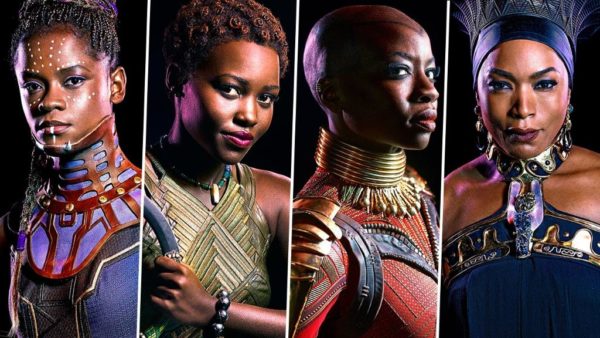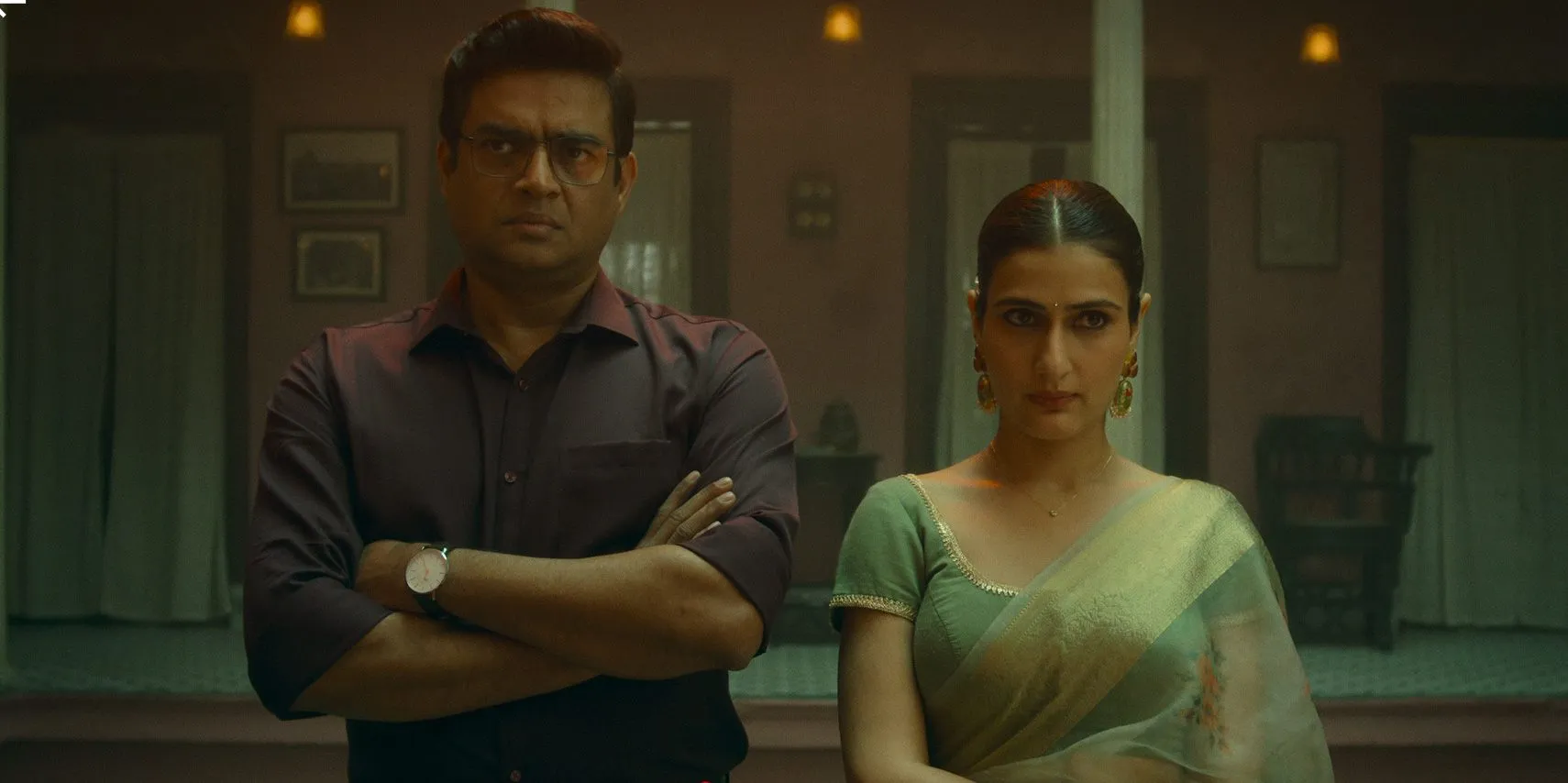Warning: Spoilers ahead.
It’s a bird! It’s a plane! No, it’s – none of that patriarchal nonsense. It’s powerful black women who unapologetically kick ass.
Since time immemorial, or since superhero comics came into being, the superhero film and an overdose of testosterone have always gone hand in hand. Director Ryan Coogler and writer Joe Robert Cole made sure to park all damsel-in-distress stereotypes by the door before they went in to make this film.
It is time to retire these tired and old archetypes that shove women into overused frameworks of mainstream action-based cinema. Black Panther is a promise to look forward to a future where women blast open the white stereotypes of eye candy and recipients of male saviour-itis, who only exist to appeal to the protagonist’s swollen male ego.
In short, the mettle these women are made of = stronger than Wakanda’s vibranium.
While Chadwick Boseman’s T’challa may have been the protagonist, let us all take a moment to acknowledge that this character would have been LOST, if it weren’t for the women in his life. They are his advisors, his protectors, his friends, his family and his entire support system. They stand by him, and when all hope seems lost, they save him.
Black Panther broke the Bechdel Test.
Audiences far and wide, through the mainstream capital that Marvel has to offer, now have the option to see women outside the pervasive lens of whiteness, of imperialism and decimating that scaffold of male-centrism. This is that mainstream portal for young girls all over the world who will be watching this film and realise that one need not be white and in constant need of saving to deserve screen time. Fictional women, yes, but immensely profound role models as well.
These women are here to fight, and they refuse to pretty-it-up for you. The women in Black Panther refuse to be objectified or subject to male voyeurism. They shunned all white aesthetics. The film turned its back on the fury-inducing objectification that women in many superhero films have been subject to, simply for the heck of it.
The first glimpse of the Dora Milaje in the trailer had me worried for a second, as my first thought of the Dora Milaje had me thinking about Gaddafi’s all-female bodyguard. The very Gaddafi who dismissively stated that women are not equal to men and attributed his male chauvinism to biology, at the same time treating women’s lives as disposable.
These women are here to fight, and they refuse to pretty-it-up for you.
But my worries were in vain.
The women in the film had personalities of their own. Better still, their lives did not revolve around men. They are not just kings guards and mothers/wives/daughters who only exist in relation to men. Their relationships with their significant others do not determine the important decisions that they make. They are warriors, scientists, tribe leaders and owners of their agency. The women characters have depth and complexity.
These women represent the fabric of society and bring us an insight into an unchained, unfettered world. A what-could-have-been world that was free from the shackles and destruction brought about by colonialism. They have never known Western constructs of patriarchy and nor will they put up with an iota of it.
So without further delay, a special shoutout to 4 women in the film who had me jumping up and down in my seat:
1. Shuri (Letitia Wright)

Image Credit: Giphy
In comparison with this delightful girl and tech-whiz, Tony Stark has some serious catching up to do.
On second thought, no. The fact that the brightest character in the Marvel Cinematic Universe is a young girl is a big win for us. Even with the Tesseract and 3 Ultrons at his disposal, Stark, combined with James Bond’s Q could not compete with the technology and inventions Shuri can come up with. Let’s face it, with her remote simulations of some seriously cool futuristic modes of transport, she enables her brother T’challa and Everett Ross to be key players in some crucial moments of the plot.
She does not care for patriarchal norms and conventions and is unafraid to speak her mind, till the point of halting age-old rituals to complain about tight corsets. A personal favourite moment is her showcasing her wit and in-depth knowledge of world history and politics as she dismissively addresses Ross as “coloniser”. Her digs at her brother induced some serious belly-shaking mirth.
She defies that stereotype about those who work in labs are just suited for the indoors and are de-facto photosensitive, as she fearlessly strides into battle.
2. Nakia (Lupita Nyong’o)

Image Credit: Giphy
Nakia is a War Dog with a heart of gold. She wins your heart the moment she reprimands T’challa for “rescuing” her from a militant convoy and ruining her mission. Having spent a lot of her time abroad on undercover missions and somewhat distanced from Wakanda’s wealth and isolation, she experiences a deep sense of pain for the rest of her people who have had to suffer for centuries.
Nakia’s character itself is yet another decolonial political pillar which held up the movie. While Wakanda is a thriving community, having evaded colonisation and exposure from the rest of the world, Nakia represents another line of thought: Is Wakanda’s isolation from the rest of the African community wise? In addition, should Wakanda, with its immense wealth, be aiding in the struggle against racial oppression?
Her (former) relationship with T’challa does not define her or the choices she makes. She is committed to her politics. She refuses to be the queen of Wakanda in order to be true to herself and what she believes in.
Lest I paint her in this goody-two-shoes light, know this: her prowess in combat is formidable. Her dedication to social justice, the ability to think on her feet and prioritising her love for her country as opposed to what duty demands of her are the reasons half the characters in the movie were able to stay alive. She is the chief architect of the better future envisioned for Wakanda.
Also Read: Super Hot Super Heroines: Unrealistic Comic Book Portrayals Of Powerful Women
3. Queen Ramonda (Angela Bassett)

Image Credit: Giphy
She is no stereotyped weepy-widow whose life would only revolve around her husband and then come to a stand-still after his untimely death. She picked herself up off the floor to support her son and is a pillar of steel for her two beloved children.
Ramonda’s presence on screen serves to remind us time and time again as to why it is crucial to keep a cool head at all times, even in times of utmost crisis. Another valuable life lesson she imparts to us is why losing your temper is not always a good idea.
The fact that she looks exactly what royalty should ideally look like doesn’t hurt either.
4. Okoye (Danai Gurira)

Image Credit: Giphy
Michonne from The Walking Dead brought over her badassery to Black Panther and just multiplied it with fabulousness.
Head of the Dora Milaje. The most phenomenal warrior in the Wakandan empire (she doesn’t need any purple herb to amplify her strength). Traditionalist. Friend. Lover. And kick-ass extraordinaire. In my point of view, she should be the Black Panther. When she’s on screen, I’m too busy thinking, “T’challa?? Who?”
Okoye needs some 10 spin-off movies, where 5 of them should just be footage of her beating up the baddies. She is fierce, angry and loyal. We are allowed an occasional glimpse of her struggling to hide her vulnerability. Her role as a soldier places her in this paradoxical standpoint where she has to choose between serving her country and its traditions (here we see Nakia and Okoye pitched opposite each other – as each other’s mirrors), doing the right thing, being T’challa’s friend and being a romantic partner to W’kabi.
When she isn’t gloriously wielding spears in a billowing red dress or showcasing her precision driving skills, she is busy building on a resolve already made of vibranium, bringing wars to a standstill and occasionally making us laugh.
Where the woke-ness of Black Panther is concerned: almost there.
Each and every woman in the film was so beautiful, and not an ounce of the patriarchal beauty standards peddled and hegemonised by the white man. The women of the Dora Milaje were bald, black and completely owned that snarl on their faces. Resting bitch-faces we should all aspire to have.
While we are on the topic of the Dora Milaje and women, it was disappointing that the character of Ayo, a member of the Dora Milaje who was originally queer in the comic books, did not get any screen time as a queer woman. Where the woke-ness of Black Panther is concerned: almost there.
The cultural reimaging and the subversive nature and conceptualising of the film gave us a world that decimated racial and gender-based hurdles. Especially in this context, the lack of queer characters was plain frustrating. What hurts even more, that this was Marvel’s most feminist film yet. Some or the other vulnerable community is always held back, even in the midst of such immense subversion.
The talk of the town, yet to be confirmed, is that there might be a sequel. Fingers crossed for Wakandan women getting their own spotlight movie and a rainbow shade on Wakandan Vibranium.
Also Read: Black Panther Review: An Insight Into An Invincible Decolonial Utopia
Featured Image Credit: Bleeding Cool
About the author(s)
Friends with half the dogs in the city, can make a career out of procrastinating and when people engage in body shaming, am quick to remind them that I eat patriarchy for breakfast, lunch and dinner.




